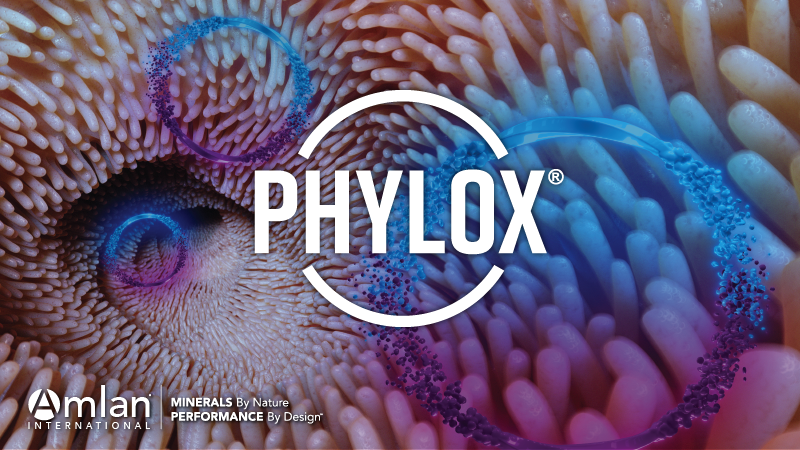Coccidiosis is the most significant disease affecting poultry production, costing the global poultry industry approximately US$3 billion annually. Not only does coccidiosis damage the gut, resulting in reduced efficiency and profitability, but it also contributes to the development of other enteric diseases like necrotic enteritis. Traditionally, antibiotics or synthetic chemicals were used to control coccidiosis; however, consumer concerns over chemicals and drugs in the food chain have reduced their use in recent years. Therefore, poultry producers need a natural, research-backed alternative to chemical coccidiostats and antibiotics — like Phylox® Feed.
Phylox (available in select international markets) is a blend of bioactive phytochemicals that decreases the negative production and health effects of a coccidia challenge. The ingredients in Phylox contribute to its multiple modes of action which include damaging the coccidia cell structure, boosting anticoccidial immunity and improving general gut health.
Multiple studies have proven Phylox decreases gut damage in Eimeria-challenged broilers, resulting in improved growth and efficiency. Further analysis of some of these trials was presented at the 2022 International Poultry Scientific Forum (IPSF) in Atlanta, Georgia, as a six-trial meta-analysis comparing Phylox to a control diet in Eimeria-challenged broilers. Research was also presented at the 2022 IPSF on how Phylox affects the immune response and gut microbiome of broilers during a coccidia challenge. Summaries of these two IPSF presentations and links to the abstracts are below.
A Research-Backed Alternative to Anticoccidial Drugs
A meta-analysis of six in vivo trials that compared the performance and health effects of broilers challenged with experimental coccidiosis and fed either Phylox or a non-supplemented control diet was conducted. Persistent effects of Phylox on growth performance, fecal oocyst shedding and intestinal lesion score were examined.
Phylox improved gut health and performance while also decreasing coccidial lesion scores and oocyst shedding. Less gut damage means improved nutrient use — supporting greater weight gain and feed conversion. Two of the experiments included treatment groups that contained ionophores or anticoccidial chemicals for comparison. In these studies, Phylox delivered gut health results similar to salinomycin, nicarbazin, and Maxiban™ (narasin and nicarbazin), as determined by coccidial lesion scores and feed conversion.
This study supports previous research that shows the potential of Phylox as an alternative to the traditional coccidiostats in poultry production. The results are particularly noteworthy in an era when use of these traditional products continues to be reduced in favor of natural non-antibiotic and non-chemical solutions.
A Novel Approach to Coccidiosis Control
This research explored the potential effects of Phylox on host coccidial immunity, the composition and structure of the gut microbiome, and intestinal integrity of broilers challenged with experimental coccidiosis. Peripheral blood mononuclear cell phenotype, ceca-cecal tonsil cytokine mRNA expression, gut microbiome of cecal content and duodenal/jejunum histopathology were examined.
Phylox Maintains Intestinal Immune System Protection
Most of a chicken’s immune tissue is in the gastrointestinal tract, helping to keep pathogenic substances out while allowing nutrients in. IL-10 is an anti-inflammatory cytokine with potent immunosuppressive effects. Coccidia can exploit these immunosuppressive properties, to help them survive in a relatively hostile environment, by increasing IL-10 during a challenge. This decreases the bird’s immune response just when it is needed. However, in this study, Phylox kept IL-10 from increasing during a coccidia challenge, stopping the coccidia from interfering with the bird’s immune response.
Preserved Microbiome Diversity
A disruption to the balance of the gut microbial community is often associated with a loss of microbiota diversity (Mosca et al., 2016). In the Phylox study, Eimeria challenge decreased the α-diversity (the mean species diversity at a local site) of the cecal microbiome, but Phylox returned it to its normal, unchallenged state. This result was for both richness (the total number of species) and evenness (the amount of each species). Additionally, feeding Phylox increased the relative amount of Blautia and L-Ruminococcus — producers of short-chain fatty acids that help the gut and the immune system maintain consistency regardless of challenges.
This study demonstrated that, in addition to damaging Eimeria cell structure and functional integrity, Phylox helps host defense mechanisms by boosting protective immunity against coccidial infection. This multimodal mechanism of action of Phylox contributes to an enhanced resistance to coccidial infection and improved bird productivity.
For more information on these studies or to trial Phylox Feed yourself, contact us at info@amlan.com.

